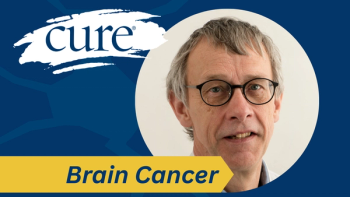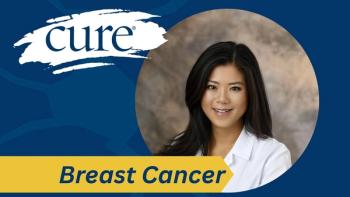
Meeting Tackles Topics for Young Breast Cancer Survivors
The 8th Annual Conference for Young Women Affected by Breast Cancer welcomed women diagnosed with breast cancer at 40 or younger.
Nearly 800 women from around the world met in Dallas for the 9th Annual Conference for Young Women Affected by Breast Cancer. The meeting was designed to touch on topics that are unique to young women, including dating, pregnancy after cancer, relationship issues, sexuality, and early menopause.
.
Jean Sachs, CEO of Living Beyond Breast Cancer, one of the host organizations, noted that many of the attendees come into the sessions already having done their homework on many topics. “This audience is very educated coming in, so we have workshops at another level. We don’t give just the basic information,” she says
The meeting offered topics from past years, while also introducing new workshops and activities into the agenda. “The most popular topics remain popular every year and they have to do with intimacy and sexuality, and new treatments, but we’ve also created workshops for unique groups, like young women with metastatic breast cancer, triple-negative cancers, and caregivers,”she says. This was also the first year a session on breast cancer and the environment was offered, which was well received with more than 100 attending.
Paired with the educational aspect, the conference also provided attendees with an overwhelming feeling of support among women who were actively in treatment, just finished treatment, long-term survivors, or metastatic—many of whom wore their status as different colored leis around their necks or wrists. For many women, attending the meeting had become an annual event.
For Rebecca Morlidge, 39, of Calgary, Alberta, Canada, this was her first year to attend the conference. Diagnosed in December 2007, Morlidge wanted to go to the YSC meeting in 2008, but treatment severely lowered her immune system and doctors were worried about the risk of infection.
“I heard some great things about the meeting when I was newly diagnosed,” she says, and was glad she was able to attend this year. The meeting lived up to her expectations and she hopes to attend next year’s conference in Atlanta, February 26-29.
“I think that if I had gone to any breast cancer conference, it would have been a little bit different,” Morlidge says, “because I would have had to search out the people who had stories similar to mine. But the entire conference had women who had similar stories.”
Because Morlidge has cancer that spread to the bone, she wanted to connect with other women with metastatic cancer. “The people I talked to the most were other women who had advanced breast cancer,” she says. “I wanted to hear more about what would happen if [the cancer] goes to my liver and brain—there’s a lot of fear in that. And getting to talk to other women who’ve experienced that takes away some of that fear, some of the mystery.”
Although all the sessions were beneficial, Morlidge says, the reconstruction breakout was particularly helpful because she’s having surgery in April. “It helped to cut my meeting with the plastic surgeon short a little bit,” she says. “We discussed it, but he didn’t have to go through the whole presentation because I had already seen it.”
Sachs echoed Morlidge’s comments. “The education is clearly really important, but the socializing is equally as important—maybe even more important,” she says. “These are women who really need to connect with each other.”
The meeting, which began as collaborations between Living Beyond Breast Cancer and the Young Survival Coalition, recently welcomed Susan G. Komen for the Cure as a partner in 2008. The addition of Komen and a grant from National Philanthropic Trust allowed the organization to expand their scholarship program to provide more than $200,000 to women around the United States and from 10 countries, including Australia, South Africa, Kenya, and Canada.
Although this was the first year the organizers had to cap travel scholarships with more than 570 applications—the most in the meeting’s history—more than 300 women were able to attend the meeting with the grants.
To access last year’s presentations via transcripts and audio recordings, go to




